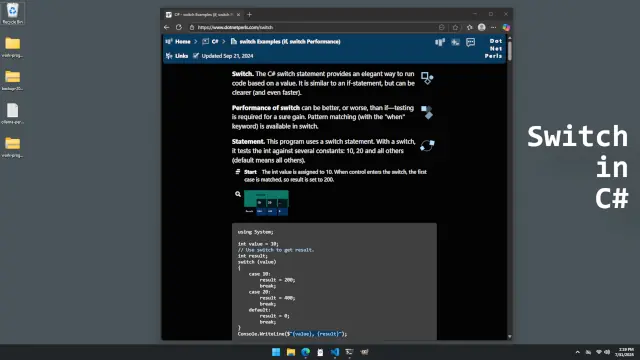When to Use Switch in C#
It is said that the decisions we make determine the lives we live. For developers, we must determine whether to use an if-statement or switch. Should developers use switch more often? And if so, when should switch be preferred—should we always replace if-chains with switch blocks?

Let's consider an if-else chain that tests for numbers. If all the cases are constant, we can convert the if-block into a switch statement. In newer versions of C# we can use ranges and expressions in switch statements—so even more if-chains can be converted.
There are some benefits that can be realized by using switch. The switch statement:
if-else chain, but this probably will only happen in situations with constant integer cases.if-statement if one case occurs frequently, and an if-statement check for it first.If I am handling a set of char values, like lowercase letters or punctuation I would prefer a switch. My thinking is that if there is a complete set of cases we want to consider, and they are all mostly equal in importance, and the cases are simple values like char or int, prefer a switch. Otherwise, reach for the old standby if-statement.